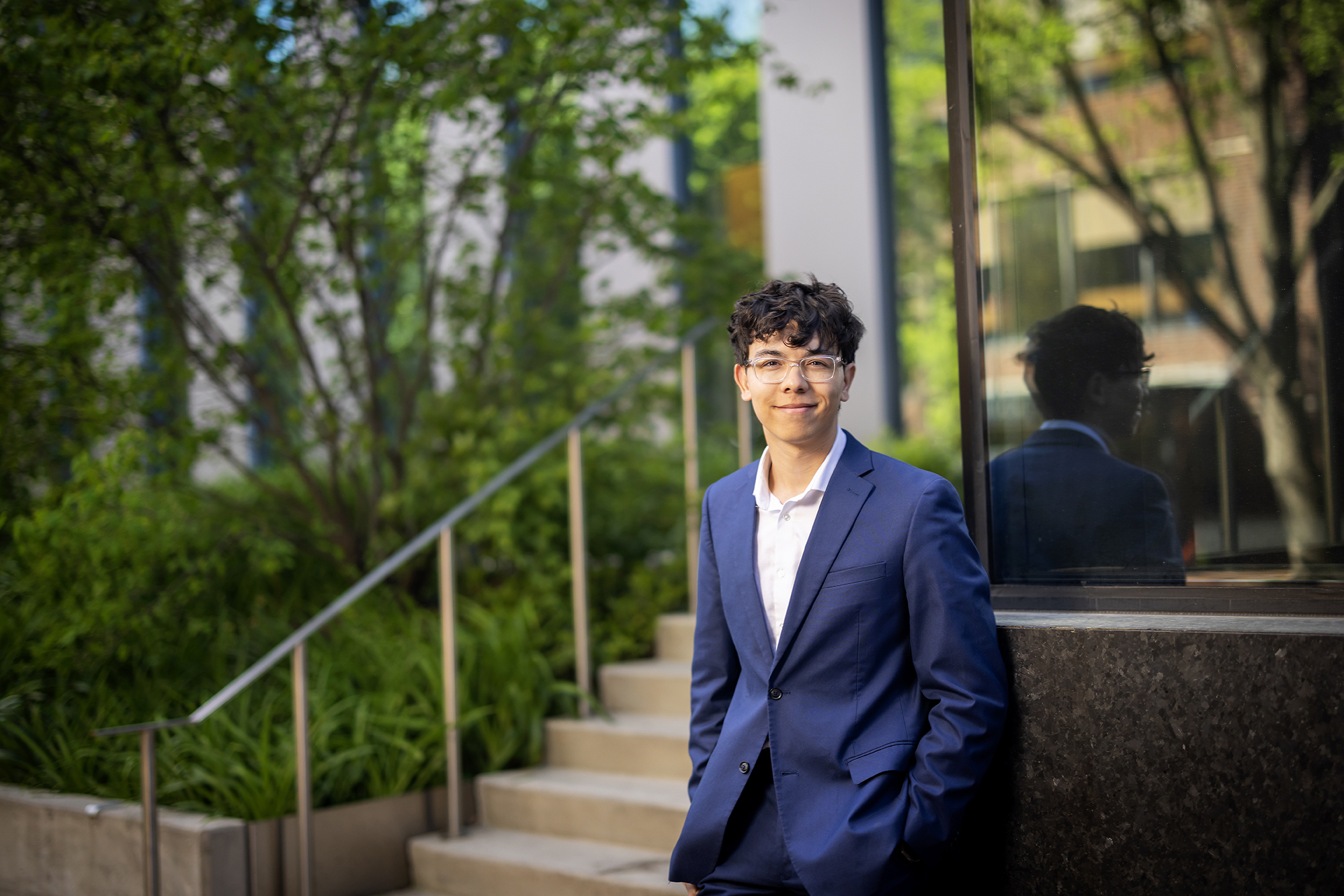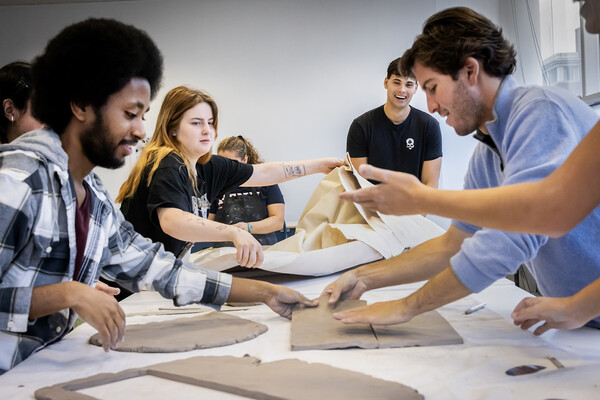
Zach Koung came to Penn knowing firsthand how important it is to have constructive dialogue despite differences.
The political science major in the Penn’s School of Arts & Sciences from Ellicott City, Maryland, had just come from serving as a student member on his hometown’s school board during his senior year in high school. He’d started his term in the summer of 2020 in the early months of the pandemic and on the heels of the killing of George Floyd by police and the racial justice marches that ensued. A few months later was the contentious 2020 presidential election.
“Long story short, it became four conservatives, three liberals, and me,” he says. The board was tackling many hot button issues, including whether schools should return to in-person instruction or continue with remote learning, and he was getting pressure. “I was often targeted and singled out for votes that I had taken, and people came after me because of my age. I was doxxed, my email and phone number were put online, my parents’ information went online. At several points, the police were involved.” There was even legislation put forth in the state legislature and lawsuits filed seeking to remove him from office and strip him of his voting rights.
“I very clearly saw what happens when there is not constructive dialogue,” says Koung, a third-year student who is graduating this month. “I personally felt the impact of what that looks like.”
Koung knew when he arrived on campus that one of his top educational priorities was to understand how people can have better conversations across differences, “conversations that don’t leave people feeling isolated, but instead leave people feeling seen,” he says.
It turned out that the classes he enrolled in that were best at answering that question were those aligned with the SNF Paideia Program. The program launched in 2019 and reimagines the ancient Greek ideal paideia—or “education of the whole person”—for the 21st century and beyond, with courses focusing on dialogue, wellness, service, and citizenship. The first Paideia class Koung took was The Future of Conservatism and the GOP, taught by political scientist Deirdre Martinez and Evan McMullin, a former Republican who was running for Senate as an independent.
“It helped answer so many questions I had. That course was my first exposure to the program and it’s what made me realize the Paideia Program was for me,” he says. Koung applied and was accepted as a Paideia Fellow and has done a deep dive into the program’s offerings, clocking in at eight Paideia-affiliated classes, more than anyone in the program’s history, according to political scientist and SNF Paideia wellness director Lia Howard.
“Zach makes every community he is part of better and we are so fortunate to have him as a member of the SNF Paideia fellows’ community,” says Howard, who advised Koung for his capstone project. “Zach distinguishes himself by bringing his whole self to every discussion—his heart and his mind are both fully engaged. While he can discuss intellectual ideas at a high level, he balances them with stories about vulnerable conversations he has experienced with others. The impression is that he’s highly attuned to caring for the communities of which he is a part.”
Some of Koung’s top hits included Political Empathy and Deliberative Democracy taught by Howard; Rhetoric and the Community, taught by Jeremy McInerney, which helps students become more effective public speakers; Good Talk, taught by SNF Paideia dialogue director Sarah Ropp; and Grit Lab, taught by psychologist Angela Duckworth.
“Taking part in this program was a way that I was able to understand what a better solution to dialogue looks like, and how we can be more effective,” he says. However, his biggest takeaway from his time as a SNF Paideia Fellow was the sense of community that developed between the students.
“We formed a very tight knit community of people who I don't think would have met otherwise, because all of us come from such different walks of the Penn life,” Koung says. “Some are studying finance, others are in nursing and engineering, others in the College. There’s something unique about bringing people together who see the value of dialogue, and then just like seeing what happens over the three years that we have together.” But the small class sizes also brought a closeness to instructors as well, he says. “I fully expect to see many of these people at my wedding someday.”
None of that is to discount the ways he’s improved his own communication skills during his time as a Fellow. “Beyond just the act of public speaking, I think that I'm far better now at one-on-one dialogues than I was before. Just small things like ‘what I'm hearing is this, does that sound right to you?’ as a way to make sure that people are on the same page and see eye to eye,” he says.
The skills have come in handy during several internships and have benefitted his interpersonal relationships. “Even talking to my parents, I’ve used some of the tricks that I've learned in these classes,” he says. “I genuinely believe that the skills I’ve learned here are going to be as valuable as the theories I’ve learned in my political science classes, or the technical skills I've learned in my data science minors.”
Koung is a tour guide at Penn, and he makes sure to sing the praises of the SNF Paideia program to all the aspiring Penn students in his groups. “I’m so incredibly grateful for the program and when I look back on my Penn experience, the Paideia Program is the experience I look most fondly on.”






